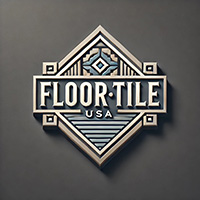| Marble |
Marble tile is a type of natural stone tile made from marble, a metamorphic rock formed from limestone under intense heat and pressure. Marble is known for its unique veining, luxurious appearance, and wide range of colors, making it a popular choice for both decorative and functional applications.
Characteristics:
- Natural Beauty: Marble is prized for its distinctive veining and natural variations in color, which give each tile a unique appearance. It comes in a variety of shades, including white, gray, black, green, and pink.
- Polished Finish: Marble tiles are often polished to a high shine, although they are also available in honed (matte) or textured finishes.
- Durability: While marble is durable, it is softer and more porous than some other natural stones, making it susceptible to scratching, staining, and etching from acidic substances.
- Cool Surface: Marble tiles tend to remain cool to the touch, making them comfortable underfoot in warm climates.
Uses:
- Flooring: Marble tiles are commonly used for flooring in living rooms, entryways, bathrooms, and kitchens, where they add an elegant and luxurious feel.
- Wall Cladding: They are often used on walls, including bathroom walls, shower enclosures, and feature walls, to create a sophisticated and high-end look.
- Countertops: Marble is a popular choice for countertops in kitchens and bathrooms, though it requires regular sealing and maintenance to prevent staining.
- Backsplashes: Marble tiles are frequently used in kitchen backsplashes, offering a stylish and timeless backdrop that complements various design styles.
- Fireplaces: Marble tiles are often used to surround fireplaces, adding a classic and refined touch to the space.
- Bathroom Surfaces: Due to their water resistance when properly sealed, marble tiles are used in bathrooms for floors, walls, and vanity tops.
- Staircases: Marble tiles can also be used on staircases to create a grand and opulent appearance.
Marble tiles are favored for their timeless beauty and elegance, making them a popular choice in both traditional and contemporary designs. However, due to their porous nature and need for maintenance, they are best used in areas where their aesthetic value can be appreciated and properly maintained.
|



